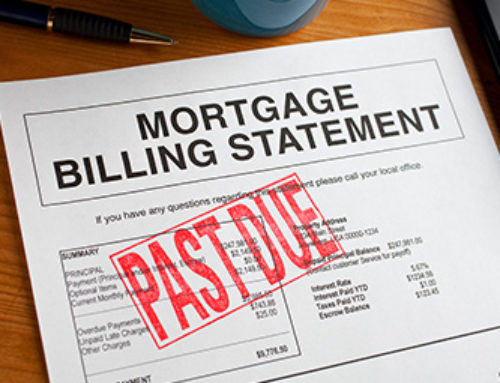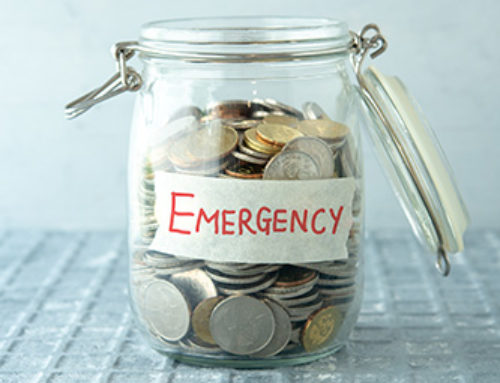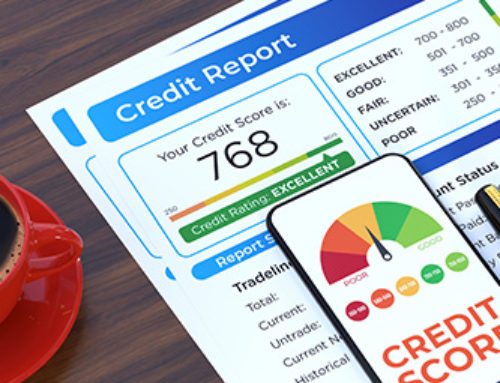Most of us may need to go to a bank or financial institution for a loan at some point in life. Having dreams and wishes is important, but they come at a price. Generally, there are two types of these costs, time, and money. Whether buying a new home, a new vehicle or planning a trip abroad, it all costs a lot of money.
Let’s say you need a loan to accomplish something you’ve been planning for a long time. Unexpected expenses put the brakes on your savings plan. Well, that is where the financial support comes in.
The majority of people appreciate the importance of financial health. Financial problems can be a source of enormous stress, but knowing how to manage your money, live within your means, and stay relatively debt-free can positively affect your physical and emotional well-being. Financial wellness involves building and maintaining good credit, and its advantages go beyond just borrowing. A strong credit score in a credit report and reflected in your credit rating demonstrates your financial responsibility. It affects your ability to:
- Secure educational, home, and auto loans
- Qualify for a credit card
- Get lower interest rates
- Get great rates on insurance policies
- In some cases, it increases your chance of landing a job.
In this article, you will learn why good credit is essential to your finances and security and why you need to strive to attain a positive score:
What Is a Credit Score?
Your credit score is simply a snapshot or digital summary of your credit report that creditors can use to determine if you qualify for credit. The Fair Credit Reporting Act (FCRA) defines a credit score as a numerical value or categorization derived from a statistical tool or modeling system used by a person who issues or manages a credit to determine the probability of certain loan behaviors such as default. A quick review of your credit history gives creditors everything they need to assess your ability to pay off a credit card, car loan, or mortgage. They can also use your credit history to decide the loan terms you will be offered or the rate you will pay on loans.
Credit scoring systems award points for each factor that helps predict who is most likely to pay off debt. The total score becomes your credit score. Late payments, maxed-out credit cards, and bankruptcies are all factors that negatively impact the credit score. Solid payment history and careful management of available credit boost the points. Consumers with very little or no score may not receive credit under any conditions. You can incur thousands of dollars in additional interest over the life of a mortgage or car loan if your credit score is low.
Why Are Credit Scores Important and What Affects Them?
Credit scores are important because they can determine your chance of securing a credit card, mortgage, or other loan types. Lenders want to ascertain your ability to pay back the money you borrowed. A low credit rating usually means that a person has made bad credit decisions in the past.
Several common financial choices can negatively affect your credit score. Some of the monetary behaviors that affect your credit score include:
Late Payment: Lenders want you to pay your bills on time. Late payments (as an oversight or even a day late) can lower your FICO score, leaving a black mark on your overall credit score.
Default on Previous Loans – You must repay every loan. Negative accounts such as foreclosure and bankruptcy on your credit report can compromise your credit score for several years.
Relying heavily on credit: One big money mistake many people make is living on credit. Habits such as maxing out your credit card, paying for an item with multiple cards, or other fiscal actions can make you quickly fall behind on payments without knowing. You end up picking a bad habit when you get too excited about your new credit card and spend more than you planned. Credit cards are very easy to use and even easier to take lightly. That is until the bills come in and the payments plus interest start to add up. Financial professionals always advise not to rely too much on credit when shopping. It is important to watch your credit card habits and keep them under check to avoid putting your credit score at risk.
Applying for too much credit in a short period: Being heavily reliant on credit is a red flag for lenders, the same as applying for too much credit in a relatively short period. If a customer request more credit, the lender will get a copy of the customer’s credit report. This document contains important information about your financial history, including the number of credit requests you have made. When the credit report shows that the customer has made several requests, it tells the lender that the customer is in dire financial shape and should be careful about approving additional loans.
What Are the Types of Credit Scores?
There are two main types to focus on, FICO and Vantage Score. There are several models of each, and lenders may use different models depending on the product they are financing (for example, mortgage or car loan).
For this reason, everyone has many credit scores. But if you follow the range under which your score falls, you’re in good shape.
FICO Credit Score Ranges
FICO has five credit score ranges as described by Experian:
- 300-579 “Very Poor”
- 580-669 “Fair”
- 670-739 “Good”
- 740-799 “Very Good”
- 800-850 “Exceptional”
- Vantage Score Credit Score Ranges
Vantage Score has five credit score ranges as described by Experian:
- 300-499 “Very Poor”
- 500-600 “Poor”
- 601-660 “Fair”
- 661-780 “Good”
- 781-850 “Excellent”
What Credit Score Ranges Mean to You
The ranges are self-explanatory. Simply put, the higher your score, the easier it will be to obtain new credits. However, borrowing is not the only thing that your credit score can determine. It can also affect your future employment opportunities and the approval of things like a rental home or insurance. Whether you want to finance purchases or need credit for any other project, you need to know your credit score. Strive to get it as high as possible so that it never gets in your way.
What Makes Up Your Credit Score?
The components of your FICO score are broken down into several factors: payment history (35%), debt (30%), length of history (15%), types of credit (10%), and recent loan search (10%). Let’s see how these elements fit into building your overall credit profile.
- Payment History
At 35%, payment history is the most influencing factor in your creditworthiness. It is also the easiest to control. Just pay all your bills on time, and you will get a score in this area.
- Amounts Owed
Amounts owed are the second most significant factor in your credit score, and it takes 30%. This is also referred to as credit utilization or credit to debt ratio. You can count this ratio by adding up the amount owed on all your revolving lines of credit. Then add up the amount of all your credit limits and compare those two numbers.
For example, if you have two credit cards with a limit of $ 400 each and no other revolving line of credit, you have an aggregate limit of $ 8,00. If you owe $ 40 on each credit card, you have a total of $ 80 in credit. This corresponds to a credit utilization rate of 10%. To get a high score in this category, keep your ratio at 30% or less.
Lenders want you to use your credit cards, but that does not mean you have to keep a balance and pay interest on them to get a good score. Therefore, by paying off your balance every month, you will avoid credit card debt and improve your credit score at the same time.
- Duration of Credit History
This next component takes 15% and will improve over time until you close your credit accounts. This is because this factor is the length of your credit history. Therefore, keeping your account open shows that you can maintain an extended credit history.
Sometimes credit card issuers close a credit card account due to lack of use. Therefore, you may need to use old cards to make small purchases regularly, then make sure to pay them off before the interest hits. This way, you can keep your accounts open and increase that part of your credit score.
- Credit Mix
This refers to the various types of credit you have, such as lines of credit and installment loans. It accounts for 10% of your score.
At the end of the day, you are better off if you have more than one type of loan. But be careful not to take a loan because of this. It is not worth it.
On the other hand, your student loans can be beneficial if you have trouble with student loans and have a credit card. They add to your credit mix.
- New credit
Also, worth 10% of your credit score is the new credit. This component, while not worth a ton, can confuse consumers. Indeed, many fear that having too many inquiries about their credit score will affect this factor. When looking for new credit, a simple rule is to do it quickly and consistently apply for the same amount.
For example, when lenders find out that you applied for three $230,000 home loans in two weeks, they will know you are buying cheap. However, when you apply for a $230,000 home loan, a credit card, and a $10,000 installment loan, you can appear to be overextended, which can put your credit score at risk. So, buy what you need, and don’t extend the new loan application process for more than 45 days. That way, you won’t hurt that part of your credit score.
How To Improve Your Credit Score
You can make financial decisions to improve your credit score. Here are some ways to improve your low credit score:
Pay Your Bills on Time: Always strive to pay your bill as and when due. Missing a single payment for a good or service can take a toll on your credit score. Try to pay all bills on or before the due date. If your house is not organized, place all printed invoices in a designated “to be paid” area, or automate your monthly bill payment. If you prefer electronic invoices (eBills), check the services available through your financial institution’s online banking services to see if you can set up payment reminders for invoices to make sure you do not miss them.
Use Less Credit: It can be tempting to take out the card for every little expense, sometimes making you lose your mind. However, having a budget for your expenses and an instant payment plan can help reduce your risk of debt. Another option is to only keep a credit card in an emergency (and to resist the urge, don’t keep it in your wallet all the time).
Commit to Repaying Loans: Establish an appropriate repayment schedule to ensure your loan is a regular monthly expense. When budgeting for your repayments, it is crucial to review the terms of your loan. Once you fully understand the terms of your loan, you can begin to assess your lifestyle to identify areas where you can make some adjustments. If the repayment is getting too much for you, remember that you do not have to get it all done yourself. You need to seek help. Ask your financial institution for help, and you might consider consolidating your debt to make your payments more manageable.
If you’re concerned about your credit score, it might be time to take charge and handle your debts. Rebound is here to help you understand your options for managing and eliminating debt. Our certified counselors can help you make good choices to improve your credit score. Contact us today to begin your journey to a better financial future.



